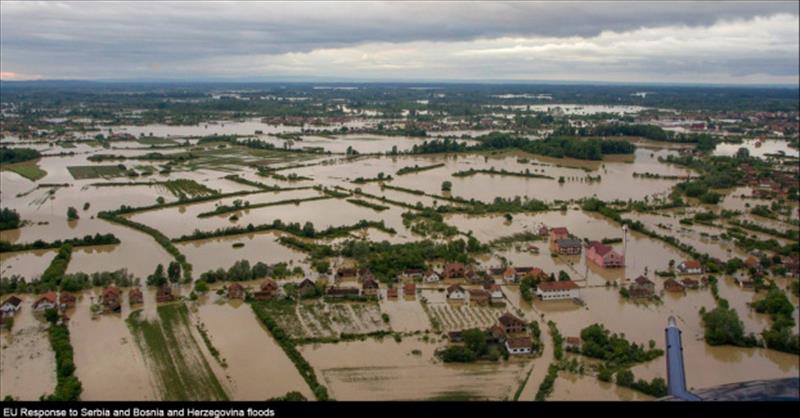The European Commission will host a Donors’ Conference in Brussels on 16 July to mobilise further support to Bosnia and Herzegovina and Serbia in the after-math of the recent floods. The conference will be co-organised with France and Slovenia. International donor countries, international financial institutions, and main relevant civil society organisations will be invited. The aim of the conference will be to collect pledges from donors for the countries’ recovery from the recent floods. The European Commission, France and Slovenia place high priority on the economic recovery of both countries and are committed to providing a substantial financial contribution. In addition to mobilising international financial support, the Donors’ Conference will also contribute to stepping up co-operation over floods and natural disasters in the region. The European Commission is working to provide further sup-port for the two countries for the reconstruction of affected areas using its pre-accession funds (IPA) and, in the case of Serbia, the EU Solidarity Fund.
The European Union, the United Nations and the World Bank, within the framework of the Joint Declaration signed in 2008, supported the process of Recovery Needs As-sessment by providing resources and technical support. The main findings in the ex-ecutive summary (http://ec.europa.eu/enlargement/news_corner/floods/index_en.htm) show that the total economic impact of the disaster is 3.98 billion KM. Most of it impacted the pri-vate sector, family, small, medium and large businesses, and agricultural producers, including an undefined number of vulnerable sectors of the population. For the Fed-eration of BiH, the total effects (damages and losses) are 2.03 billion KM, with 1.89 billion KM for Republika Srpska and 57.89 million KM for the Brcko District.
The assessment was undertaken for six sectors and three thematic groups, resulting in a quantification of the partial or total destruction of assets that will have to be re-paired, replaced or reconstructed. It also provides an estimate of the related losses, which include losses in production, income, livelihoods and employment as well as diminished access to services and goods, increased costs for society and government, and altered risk.
Senior EU officials have visited BiH and the cities most affected by the worst floods ever recorded in the country. On 21-22 May, the EU Commissioner for International Co-operation, Humanitarian Aid and Crisis Response, Ms. Kristalina Georgieva, visit-ed BiH to see at first hand the effects of the devastating floods in the country. On 23rd June, the Director responsible for Bosnia and Herzegovina at the Enlargement Directorate General of the European Commission, Jean-Eric Paquet, visited Samac to discuss the situation in this municipality. On 27 May, the Director General of the Eu-ropean Commission’s Directorate-General for Enlargement, Christian Danielsson, accompanied by the Chief Coordinator of the EU for the Recovery Needs Assessment, Ricardo Zapata Marti, visited Doboj which was one of the cities most affected by floods.
The pledges list available at the link above reflects the Donors Conference’s pledges as of 16 July 2014. Accurate and updated information about the pledges can be found in the database managed by the BiH Ministry of Finance and Treasury and available at the following website www.donormapping.ba.


